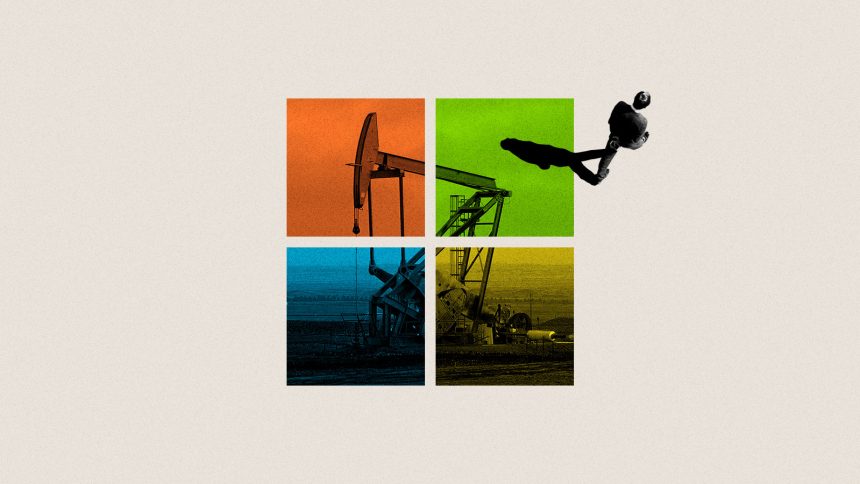This story was produced by Grist and copublished with Drilled. For nearly a decade, Holly Alpine (née Beale) enjoyed her time working at Microsoft. Starting in July 2014, shortly after completing college, she began working as a technical account manager at the company. In less than four years, Alpine was promoted to lead a team that supports environmental projects near Microsoft’s data centers. She was also instrumental in establishing a worker-led sustainability group known as the Sustainability Connected Community, which grew to include nearly 10,000 Microsoft employees globally by late 2023. However, by the end of last year, Alpine came to a difficult decision: she could no longer continue working at Microsoft due to ethical concerns. On January 24, 2024, Alpine sent an email to Microsoft president Brad Smith, CEO Satya Nadella, and other senior company officials informing them of her decision. In the email, Alpine expressed her disappointment in Microsoft’s collaboration with the fossil fuel industry to automate and accelerate oil extraction. Alpine and a colleague resigned together, citing this as a major reason for their departure. Despite their love for the company, they felt compelled to take a stand against actions that contradicted their values.
Over the years, Alpine had been part of an internal employee-led effort to raise ethical concerns about Microsoft’s work with oil and gas companies. While internal pressure led Microsoft to announce progressive climate goals and support federal climate policies, convincing the company to forgo profitable oil industry contracts proved challenging. Alpine eventually realized that internal advocacy was not enough, leading her to speak out publicly in a hope to hold Microsoft accountable for its contributions to fossil fuel emissions. This marks a rare instance in which tech industry workers are pressuring their employers behind the scenes to address climate issues.
Microsoft, while taking steps to improve the sustainability of its operations, has continued to provide cloud computing services and software tools to oil and gas companies. These technologies help in maximizing oil production, increasing profitability, and driving efficiency in operations. The company’s collaboration with the oil industry has raised concerns among employees and advocacy groups, highlighting the need for more responsible business practices. Despite Microsoft’s efforts to be carbon negative by 2030, its partnerships with fossil fuel companies remain a point of contention for climate-conscious workers.
Alpine’s decision to resign and speak out publicly reflects a growing trend among tech industry workers to hold their companies accountable for their environmental impact. As conversations around climate change intensify, employees like Alpine are pushing for more transparency and responsible business practices in the tech sector.






